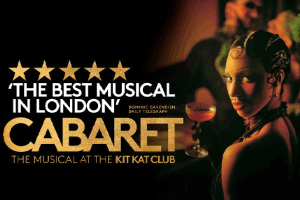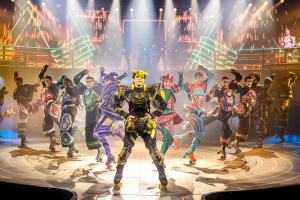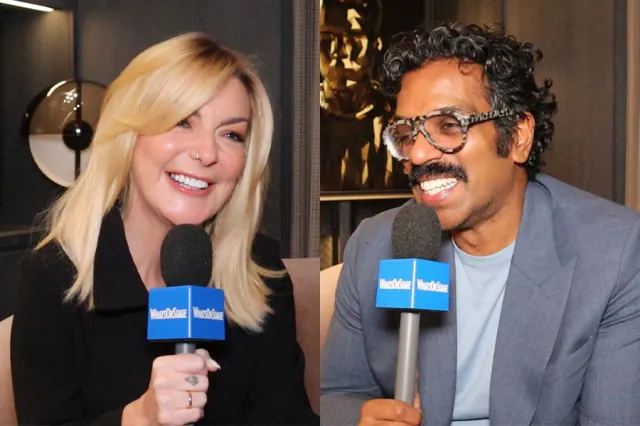Cabaret review – Eddie Redmayne and Jessie Buckley lead shattering West End revival
The Kander and Ebb musical is revived by Rebecca Frecknall
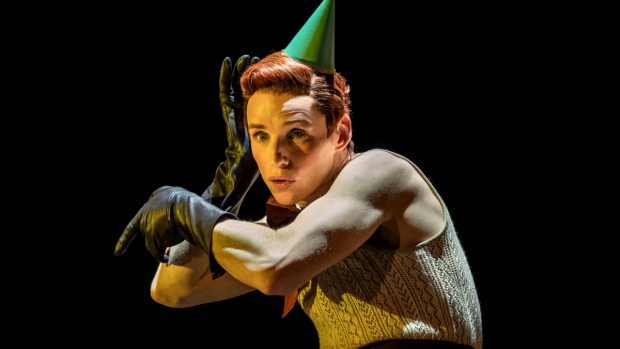
© Marc Brenner
The stamp of a great work of art is that it can bear many interpretations. Director Rebecca Frecknall, with the help Eddie Redmayne as the Emcee and Jessie Buckley as a really sensational Sally Bowles, has taken Kander and Ebb's 1966 musical and completely reimagined it. The result is both shattering and utterly magnificent.
The arc of the story is told through Tom Scutt's astonishing designs, which greet you as you enter the Playhouse Theatre through the basement and discover it has been transformed into the Kit Kat Club, the 1920s Berlin nightclub which is the show's setting. Scantily dressed dancers and musicians perform in the bars, behind beaded curtains. In the slate blue and gold auditorium, a circular stage, in three moveable parts like a birthday cake, is surrounded by rows of tables then by seats in the round. The band, dressed in stylish velvet and playing wonderfully for music director Jennifer Whyte, sits in two balcony boxes.
This sets the scene for the famous "Willkommen" with its opening promise that coming to the cabaret will make up for the disappointments of life. "in here, life is beautiful. The girls are beautiful. Even the orchestra is beautiful." The line is delivered by Redmayne, rising from beneath the stage like a strange master of misrule, red party hat askew on his ginger-wigged head, arms jutting out in crooked curves, every word from his twisted mouth freighted with double meaning. He's surrounded by a sea of individuality, writhing bodies making small, singular gestures, pushing themselves into frenetic shapes.
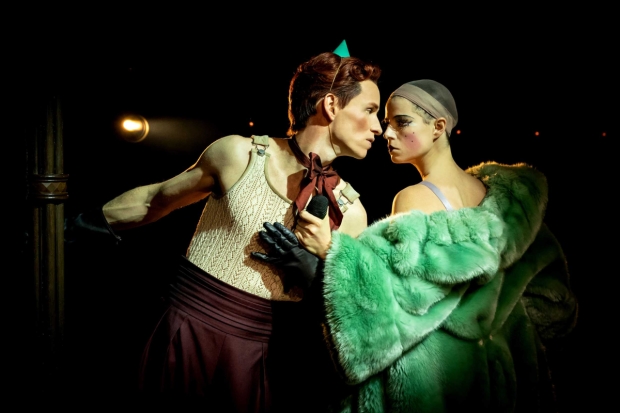
© Marc Brenner
Scutt's costumes are a riot of soft colour and texture, and Julia Cheng's extraordinarily detailed choreography creates a tawdry, sexualised world, where everyone gets to express themselves and no-one is quite what they seem. By the close of a devastating night in the theatre, that image has been replaced with beige uniformity and straight lines of movement. The Nazis rise to power, documented in Joe Masteroff's book in which the Emcee becomes a symbol of the soul of Germany, is shown not through familiar images of black and red – though one swastika armband does make a shocking impression – but by colour literally seeping out of the world.
The result, central to Frecknall's thinking, is terrifying, with a darkness that reaches all the deeper because the audience has been made to feel complicit. That realism shapes the acting too. Redmayne's Emcee – a proper performance rather than a star turn, though it is thanks to his determination that this entire production happened – is not at all ingratiating. His movement is twisted, his singing strong but staccato and very precise.
He is almost Mephistophelean in his journey from boy in braces, though a masked and armed Pierrot, to blond conformist still conducting events but now to a different tune; he sings "I don't care much" with uncommon savagery and you believe he doesn't. The production makes something of his identification with Sally, dressing them the same at vital moments, recognising their survival instincts, but he watches her travails blank-faced.
As Sally, Buckley is equally brave. This staggering performance is about as far as you can get from Liza Minnelli in the film, while still both singing the same songs. There's something already disappointed about Buckley's Sally when we first meet her; her voice breaks as she wishes Omari Douglas's dazzled Cliff "Happy New Year". She shows her showbiz brilliance in "Mein Heir", but once she is sacked from the Kit Kat, she conveys Sally's journey from brittle belief to disenchanted clinging-on through her interpretation of the songs. Her final "Cabaret" changes the song from a show-stopper to one that freezes the blood, powered with fury and unbearable self-knowledge, screaming at herself and at the world. At the close she drops into the depths of the stage, as if vanishing into her own moral void. It's unforgettable.
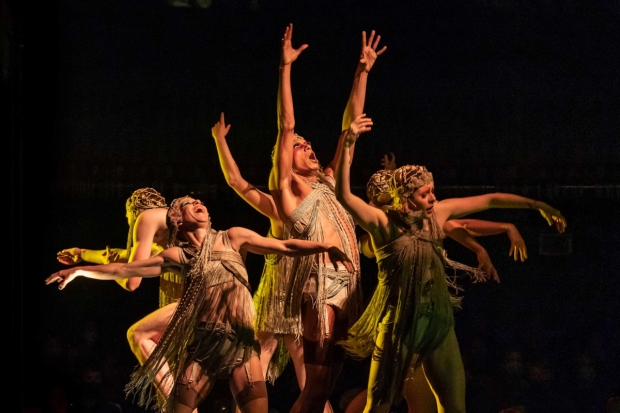
© Marc Brenner
Around these two central performances, Liza Sadovy as Fraulein Schneider and Elliott Levey as Herr Schultz build a touching picture of a true romance that is shattered when Schneider decides she cannot marry a Jewish grocer. The scene of their engagement, as the apparently friendly Ludwig (Stewart Clarke) is revealed to be a Nazi and Anna-Jane Casey as Fraulein Kost leads the singing of "Tomorrow Belongs to Me" is all the more chilling for its quiet domesticity. Schneider's accusatory "What would you do?" a song of survival and moral compromise is sung as if in the club setting, with the table lights aglow; we are involved in her decision.
With its starry cast and a director who has made her name rethinking classic plays, this Cabaret always promised to be the show of the season. It is that. It's also a show for our times.


